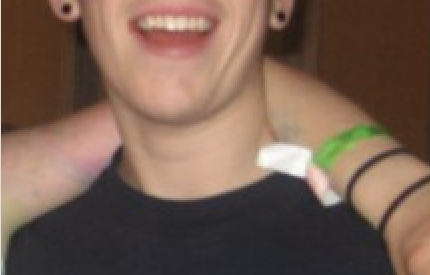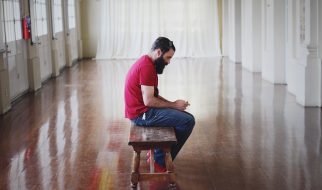Why taking 365 days from a familiar crutch became the best decision of my life and changed my relationship with myself forever.
This is the most important post I?ve ever written, and it?s about the best decision I?ve made in my life. I originally wrote this for myself, and only myself. There are admissions in this piece that are scary to put in the public eye. I felt deathly terrified just thinking about hitting the ?publish? button. Scared of what people would think. Nervous of my image. Attached to my own version of self worth and identity wrapped up in others? judgement.
But I leaned into the discomfort.
And eventually the feeling subsided? So here I am.
And I am who I fucking am.
This blog is about liberation. It?s freedom from personal sabotage. It?s escape from my own self-imposed prison in my mind. I?m constantly searching for self-actualization through this type of documentation. And, by sharing, I may also help someone else going through the same thing.
Three-Sixty-Five
A while back I decided I wanted to change my relationship with alcohol. And when I say ?wanted to? I mean to say ?needed to.?And when I say a while back, I mean exactly three hundred and sixty five days ago ? although this change was a long time coming before that.
August 20, 2019 marks one full year without alcohol for the first time in my life since 2005, when I was 15 years old. As I share my personal and vulnerable struggles in my relationship with alcohol, I realize there might be others in a similar position. Each person?s relationship with alcohol is their own, and my intention in writing this is to impart 0 judgement.
I know people who have healthy relationships with alcohol. They don?t need it everyday, and when they drink, they do so sensibly. I also know many people who don?t. If you want to share your story, leave me feedback, or discuss this topic, please message me. You can leave a comment below, or email me at [email protected]. I will answer every message.
You?re Either an Alcoholic or You?re Not ? Society?s View
When I was first considering quitting alcohol ? and I mean seriously considering it? not the half-drunk lie, ?I?m never drinking again,? I?d utter in the Taco Bell drive-thru after a rowdy night? I started getting targeted advertisements from One Year No Beer.
In the advertisement, there was a quote so simple, yet so profound, it spoke to where I was in that moment:
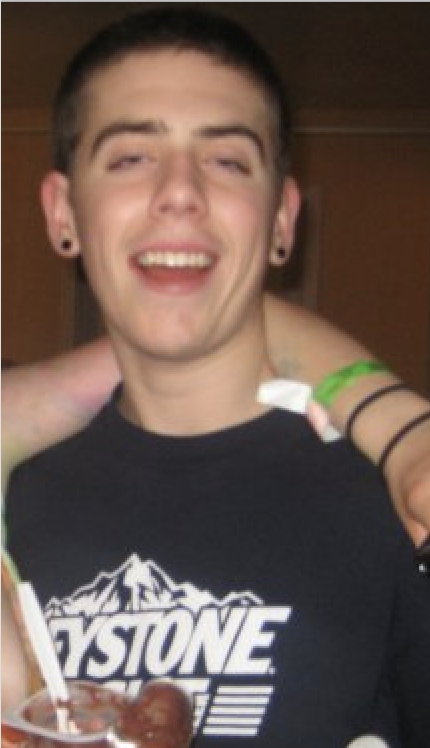 I?ll talk more about the OYNB community later in the article.
I?ll talk more about the OYNB community later in the article.
We seem to have a societal misconception where you?re either an alcoholic or you?re not and therefore don?t have a problem. What about the grey area in between? Taking a break from the booze (and note how we say break) isn?t just for people with alcohol dependency issues.
It was one of those advertisements seemingly more common in the digital age. The ones that make me legitimately question whether or not they are listening to me through my phone speaker.
Regardless, this immediately challenged my thoughts?
What do I think when I hear the word ?alcoholic??
- Someone who goes to AA meetings and carries around a sobriety coin?
- The homeless lady at the park drinking a warm 40oz out of a shopping cart?
- A deadbeat dad passed out on the couch with a half lit cigarette in his hand?
This made so much sense. The word alcoholic is polarizing. It implies severe addiction, disease, and lack of control. Implications force people to the fringes. That?s because there?s not really a word that fits between alcoholic and?well? sober.
What about the wide variety of people somewhere in the middle of the spectrum?
Alcohol has a mainstream place in our society. We normalize drinking during the college experience, glorify it in movies and media, and hell, offices now have free beer in the fridge, so you don?t even have to wait until happy hour. It?s easy to blur the line between a healthy relationship with alcohol when its commonplace in our culture surrounds us everywhere we turn.
Creating a Monster Inside ? My Personal Struggle
I?ve never considered myself an ?alcoholic.? And maybe that was part of the problem. When something isn?t an overt issue, it becomes an afterthought. Because I associated the word the way I did, I would have never willingly adopted it as part of my identity.
But just because you?re not an alcoholic doesn?t mean you don?t have a drinking problem. And, just because you drink doesn?t mean you have an alcohol problem.
I never had a daily dependency on alcohol. I?ve taken months off from drinking before without temptation. When I decided I didn?t want to drink it was easy not to. But, sometimes when I would drink I wouldn?t have an ?off? button and I paid no attention to my limits.
In the moment I would always go for the next round. I would binge and overindulge. By the end of the night I would become a poor representation of myself. To some this subject may hit home? hard. To others this may be a foreign concept.
?What do you mean you don?t have an off button??
For those who have never ?blacked out? before, I?ll let you in on a little secret ? it?s not something I?d advise trying for fun. And, when I think back to the problems I?ve created in my life, most (if not all) started on a night with a few too many.
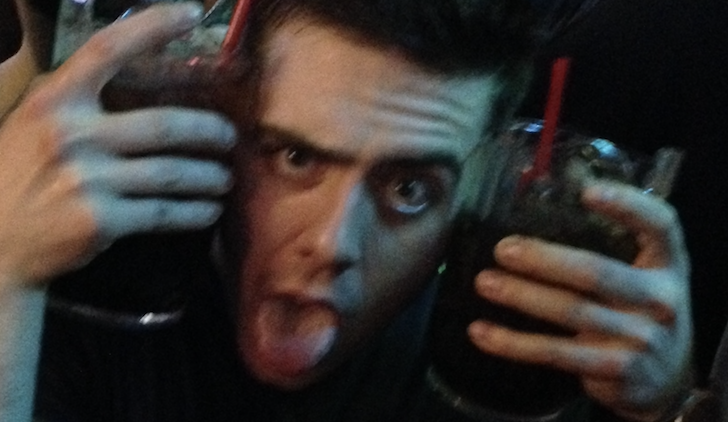 I was the epitome of a walking Keystone Light Advertisement? eating a snack pack in the dorms after a paint party during freshman year of college.
I was the epitome of a walking Keystone Light Advertisement? eating a snack pack in the dorms after a paint party during freshman year of college.
When I reflect on my late teens and early 20?s I recognize the normalization I created with binge drinking. It started in college when my friends and I would party up to 5 nights a week. In freshmen year I distinctively remember a group of us drinking up to 10 shots each before going out to parties.
Nightlife for me was a blur. I wasn?t aware of how I acted. I feel like apologizing to anyone who knew me from that time period. I drank more than I could imagine someone drinking now, and in those moments it?s easy to be oblivious.
I was so fucking lost.
I didn?t question my behavior because it seemed like ?everyone was doing it.? And there?s some truth in that. Chico, the city in which I went to college was also named the #DrunkestCityInCalifornia.
Regardless, the WORST excuse or justification for anything is: ?everyone else is doing it.? That?s how you end up drinking the fatal Kool-aid. And I always shifted blame or responsibility to the fact that it was ?normal,? especially in college.
But it wasn?t.
Years later, looking back, I realize how much shame, resentment, and hatred I built up toward myself. There?s nothing like the feeling of disgust and wonder when your eyes creak open slowly on a couch you don?t recognize, not knowing how you got there.
I?ve been in fights for no reason, admitted to the hospital, taken to jail, sexually promiscuous, and consumed hard drugs all as the result of my actions after ?just one more drink.?
Is it ever REALLY just ONE more?
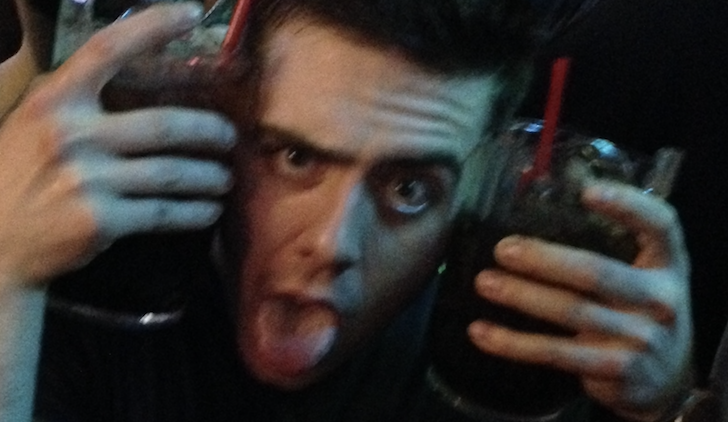 Even one PITCHER wasn?t enough?
Even one PITCHER wasn?t enough?
Not only did I damage relationships, embarrass myself, and spend WAY too much money, but I put myself and others in compromising situations. I lost cell phones, wallets, keys, and even my damn shoes. I once walked 3 miles on cement without my phone, shirt, shoes, or wallet after a July 4th day party in Lake Tahoe. I mean shit, even my Uber rating took a seemingly insurmountable hit after a few wild nights ordering rides after 4am.
My behavior became something I wasn?t proud of. I couldn?t tell you who I was becoming because I was never conscious enough to meet that person. It wasn?t really me.
During my life, my motivation to drink has been centered around ESCAPE.
When I drank I felt a sense of relief. A welcome if you will, into the world of acceptance of myself and carelessness about my actions and what others thought of me.
Because, in a drunken state, I didn?t have to deal with my emotions, my realities, my failures, and relationships. Without feeling I could temporarily live a different life. One behind a mask.
This caused me to rethink what I ?needed? alcohol for. And subsequently what I wanted my relationship with MYSELF to be.
Why I Quit ? The Power of Shame
Shame, while an emotion most of us will do anything to avoid, has become my main motivator. It?s powerful. I don?t want to be that person who?s reared his ugly head when I?ve had too many. Anyone who?s met him (I named him Chet) can attest to that too.
He sucks.
Yes, this type of lifestyle has led to a plethora of crazy stories. But, what are eccentric, crazy, drunk stories if you don?t remember? What are these stories to me if I have to learn about them secondhand?
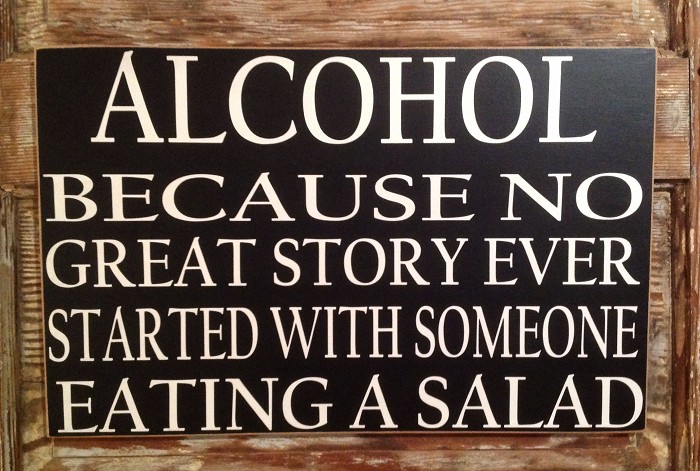 Yeah, but I?d argue far less nights starting with a salad ended by waking up in jail.
Yeah, but I?d argue far less nights starting with a salad ended by waking up in jail.
It?s impossible to live in full integrity and alignment when acting that way. It?s shameful to wake up and not know the full story. I did things that I?m not proud of. I made poor decisions. I could?ve DIED on several occasions.
And all for what? A shitty hangover?
Hangovers are a gateway drug to apathy. When I?m hungover I don?t contribute to causes I care about the way I need to. I don?t strive to achieve my goals and ambitions because I?m too tired. I don?t give myself time and energy to do things I promise myself I?m going to do. I eat like shit and avoid exercise because I feel lazy. Forget my habits, a nap sounds way better.
I?ve been so ashamed of myself for my actions and the effects of abusing alcohol that I realized I actually hated myself. It took me to low place s? depression, anxiety, frustration, self-loathing, and even suicidal thoughts.
Alcohol, for me, is like a bad relationship I?ve stayed in, but I know I should?ve left a long time ago (most of us have had one of these). Alcohol is the sexy girl way out of my league that somehow I got to go out with me. Then, after going FBO and getting past the honeymoon phase I?ve come to find out she?s absolutely intolerable.
How I Quit Alcohol
The past few years I?ve made incredible strides in my relationship with booze. As I mentioned, I?ve taken extended times without it and also been able to moderate. It always felt like quitting was the next logical step of the process.
But for a long time I didn?t feel ready. It was nice to think about quitting, but I couldn?t bring myself to commit to the idea, especially since I had already made great progress toward moderation. Sometimes these type of things take a breaking point.
The weekend before quitting I was at a close friend?s bachelor party. Seventeen of us got together for a weekend at a lake house, and after two straight days of beer olympics, whiskey shots, dinner wines, scotch, and more ? I finally had enough.
At the time I hadn?t drank that much in years and upon going to work on Monday I suffered through a literal 3 day hangover. I felt depressed, anxious, unproductive, and frustrated (surprising, since alcohol is a depressant, right?). I sat and pondered:
Why do celebrations in our society serve to ironically produce the opposite feelings?
But, more importantly:
- What responsibility do I own in decision making about how I want to feel?
- Why do I put myself through this and how does it serve my greater purpose?
- Was I going to continue to be willing to accept the discomfort and dreadful post vacation Mondays as a cost to play the game of life?
- What if I didn?t have to muster up willpower from depleted hormone stores to power through my hangovers like a zombie?
- What if I made an active choice not to feel this way anymore, ever?
And, at the end of the day:
What benefit is alcohol bringing me at this point in my life?
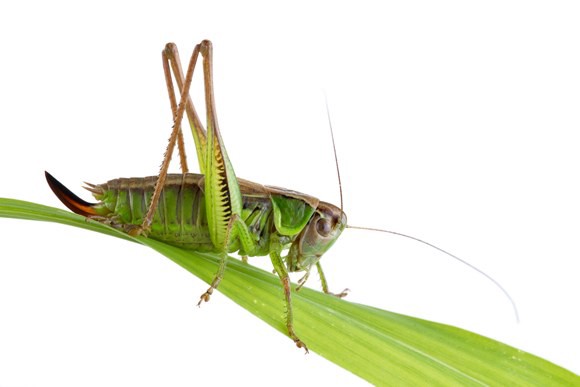 Crickets?
Crickets?
It was at that moment I knew?
I was READY.
Emotional Commitment
When I made the decision to quit, it happened like a light switch. There was no more bullshit. There was no more waiting. There was no more excuses. This was the intrinsic motivation I was missing before, when I just ?thought? about quitting. I?ve never faced anything with such certainty.
But while I made the emotional decision to quit alcohol I knew the process wasn?t necessarily going to be easy. I had to change over a decade worth of embedded behaviors and a relationship with a substance that historically, in my extended family, created dependence and addiction.
My key to quitting started with my emotional commitment to myself. I can?t stress the simple fact that you need to be committed if you?re going to quit. Sometimes you won?t be fully ?ready,? and that?s life. No one else can do it for you, and no one else can convince you.
Finding a New Normal
When first deciding to quit alcohol, it seemed like everything around me was going to crumble. Some relationships I carried for years were ingrained in drinking culture. Literally the fabric of our friendship was as ?drinking buddies,? and it was the foundational activity for anything we did. It was how we got to know each other ? we pre-gamed everything:
- Want to watch the game at my place? BYOB.
- Heading to the festival? I got the first round.
- Come to your sister?s graduation? Vodka looks enough like water in a bottle.
It was daunting to think about how things might change:
- Will I lose friends when I stop drinking?
- What will others think of me if I?m not drinking?
- What the fuck am I actually supposed to do for fun?
Intimidating as it was, I was surprised. I found out that life, with and without alcohol, while initially seeming dramatically different, was paradoxically the same.
Talk about a confusing observation.
Why?
- Activities didn?t change.
- Other people didn?t change.
- The world didn?t change.
What did?
My perspective.
- The way I engaged with activities.
- The way I related to others.
- The way I saw the world.
I also realized I could do everything I did with alcohol, just without it. And, objectively, these encounters were the same, I was just experiencing them differently. With this newfound perspective I felt like I gained some hidden awareness that was ironically in plain sight my entire life.
I started to get to know myself. I realized how much I actually didn?t like to go to clubs, noisy bars, and packed festivals. I realized that by numbing myself to these events I built a tolerance to these environments, and simultaneously subdued my real interests. My eyes were finally fully open. How long was I living like a fucking robot, going through the motions, tolerating surroundings that I genuinely despised?
I knew I needed to find a new normal. That meant uprooting my current habits and establishing new ones. Charles Duhigg, in his book, The Power of Habit, talks about the Habit Loop.
The Habit Loop is a neurological loop that governs any habit. The habit loop consists of three elements: a cue, a routine, and a reward. Understanding these elements can help in understanding how to change bad habits or form better ones.
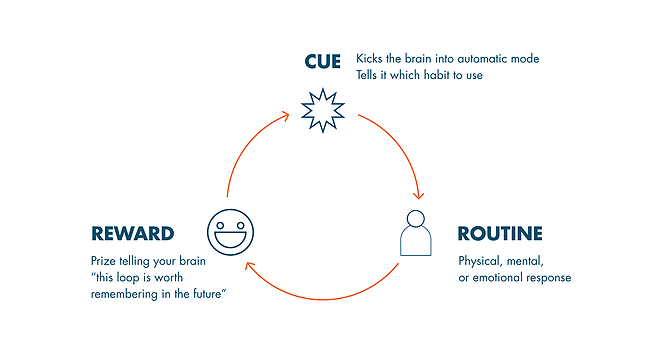 The Habit Loop.
The Habit Loop.
The idea is to first gain awareness of your own habits ? what are the things you do unconsciously that you want to change, and what are the components motivating those habits?
From the seat of awareness you can recognize the cue, real time, change the routine, but keep the reward. This was easier said than done. I not only felt detached from my own self-awareness when I drank, but I also had a hard time comprehending what rewards I was receiving from drinking.
I started thinking about themes when I drank, including common cues: certain people I would hang out with, stress I felt from situations at work after a long week, and events that were centered around drinking. These provided a good start to understanding my triggers.
Then I referenced material I learned at the Tony Robbins? Unleash The Power Within event I went to in 2017. This helped me understand the reward system I unconsciously allowed to dictate my habit loop. Tony talked about the 6 Human Needs, all listed below:
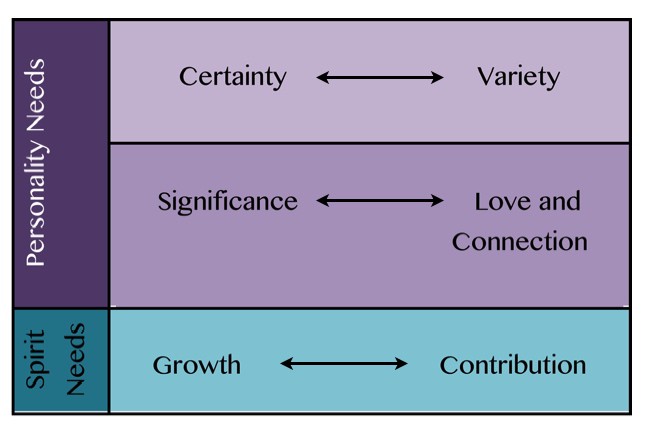 Tony Robbins 6 Human Needs.
Tony Robbins 6 Human Needs.
I thought deep about what was driving my behavior to choose to drink and behave the way I did when I drank. What stood out was ?variety,? which was my #1 ?personality need? I tested for during the seminar. I realized this was the same need that directed my drinking patterns.
When I went out and drank heavily there was always the opportunity for the unexpected:
I might meet a celebrity, catch a ride in their limo, and head to a concert with backstage passes while sipping on a bottle of Dom Perignon. I might get head in the backroom of a karaoke bar by a hot girl I just met because she was so impressed with my version of Creed?s ?Can You Take Me Higher.? I might witness a crazy fight where a dude talking mad shit didn?t realize he was picking a fight with an MMA fighter and subsequently catches a serving of karma pie.
I didn?t have to know what was going to happen. It was the fact that when I drank I was on my way to the unknown that created excitement. The possibilities were endless ? and drinking amplified the radicalized nature of those situations occurring. That was my idealistic reward of variety.
As I replaced nights of drinking I could satiate my need for variety by:
- Discovering new healthy activities and hobbies to participate in
- Finding communities to join with people that had similar ambitions
- Reclaiming interest and investing time in projects I?d procrastinated for years
Actively seeking new avenues of passion lit a fire under me. I was so much more engaged in my life. I felt awake. I felt fulfilled in the process of discovering myself, my real self, for the first time.
My New Identity
With new awareness and a new normal, I had to prove that I could stick with it. It?s sometimes easy to change for a short amount of time, but the real test is consistency and longevity. James Clear, an author and expert on habit formation, says it takes 66 days to form a new habit. So, I knew, even after initial couple months of feeling good, I had to form an entirely new identity.
In his book, Atomic Habits, he describes the identity shift required to create lasting change.
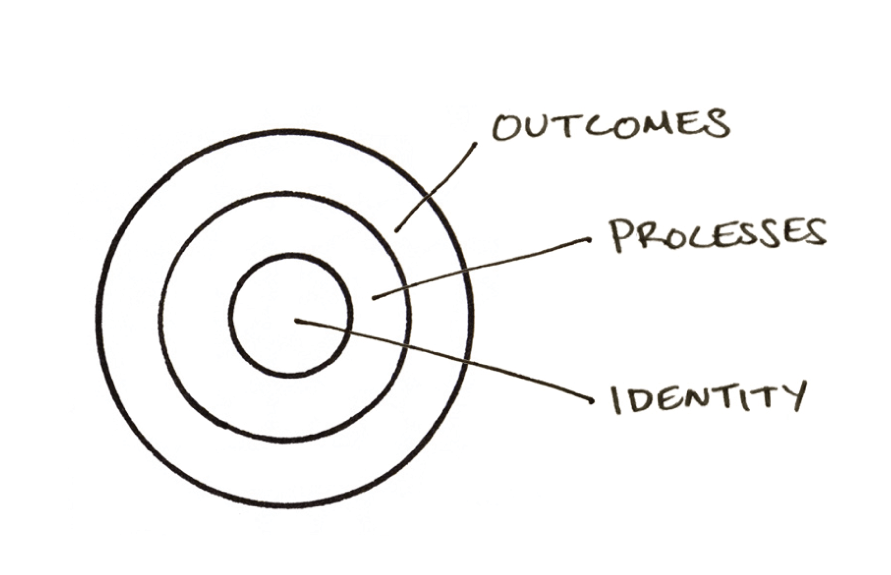
The first layer is changing your outcomes. This level is concerned with changing your results: losing weight, publishing a book, winning a championship. Most of the goals you set are associated with this level of change.
The second layer is changing your process. This level is concerned with changing your habits and systems: implementing a new routine at the gym, decluttering your desk for better workflow, developing a meditation practice. Most of the habits you build are associated with this level.
The third and deepest layer is changing your identity. This level is concerned with changing your beliefs: your worldview, your self-image, your judgments about yourself and others. Most of the beliefs, assumptions, and biases you hold are associated with this level.
When I started focusing on my self-imposed identity and the core of my belief systems, I had to reframe my language, too. James uses a great example about quitting cigarettes (something I also did many years ago).
After deciding to quit, when asked if they want one, many people will say:
?No thanks, I?m trying to quit cigarettes.?
But, that is outcome based, and by focusing on ?trying? the inherent belief is that it?s not part of someone?s identity yet. They are still a smoker who?s trying to make it happen. Even a simple change in language can increase the chance of adoption. Instead of that, he recommends trying:
?No thanks, I don?t smoke.?
In that sense, a person is speaking directly with belief that they are not a smoker. It?s a subtle, nuanced difference, but they are using their language to affirm their identity. For me, this was an important step. I was not ?trying to quit alcohol.? From the first day I decided to quit, I was a person that didn?t drink. I identified with that. I found pride and confidence in my stance.
My Alcohol Replacements
Drug replacement therapy, as defined by addiction.com is the practice of prescribing specific drugs to help an addict withdraw or quit another drug. Commonly used to help people ween off opioids, it?s also effective during detox periods from alcohol for severe withdrawal symptoms.
As I mentioned a few times, I?ve never felt like an alcoholic. I?ve never had withdrawals when removing alcohol from my life, but, I found coming up with replacements helped my psychological dependence on alcohol in social situations. It helped me find a ?new normal.?
There?s something habitual about even holding a drink at social gatherings. Peer pressure is very real, even as an adult. It can seem awkward at times not drinking, and I had to get over the question that inevitably came my way many, many times, ?Oh, you?re not drinking? How come??
Trying to fit in at a party without the comfort of a cold beer made me feel like Ricky Bobby after winning his first race.
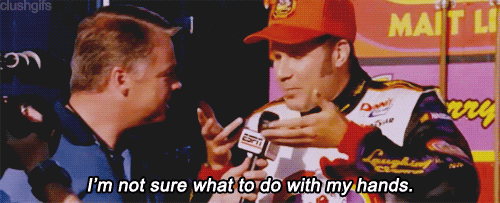 My exact stance at the first few parties and bars I went to as a sober person.
My exact stance at the first few parties and bars I went to as a sober person.
- Seltzer Water
Many people have jumped aboard the La Croix train. Nowadays there?s so many damn seltzers that seem to come out each week. I?ll bring a 12 pack of these to a party instead of beer, and while probably not the best, I can put down up anywhere from 7?10 of them. I may get overly bubbly but I?m hydrated AF and there?s always people who will want one. If you?re at a bar or club, a seltzer and lime is your key to fitting in. People will never know you?re not drinking and you don?t ever have to feel the need to explain yourself.
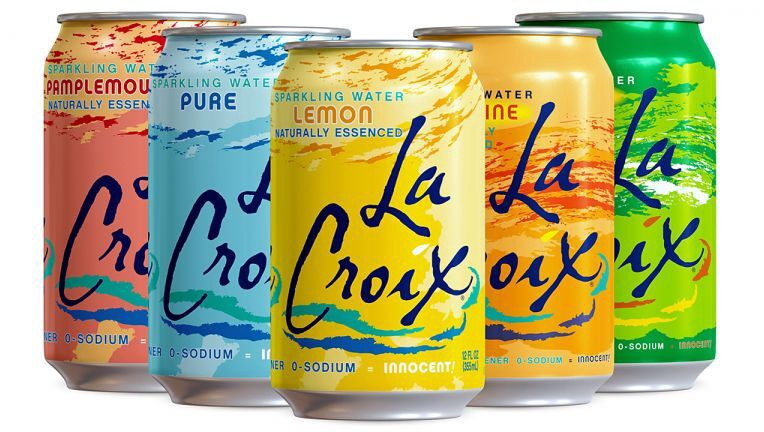
- Kava
I?m in love with Kava. I?ve probably introduced Kava to two dozen or more people. The kava root is ground into a powder and strained to create an earthy ?tea.? It?s a ceremonial drink from the pacific islands that made it?s way to the Western world, where it?s now legal. Kava bars are popping up all over the USA (I have yet to find one outside of America) and it?s a great alternative to alcohol. It?s a relaxing, natural, anxiety reducing drink that is meant to calm the senses. Warning 1: Kava isn?t drank for the taste. Expect to drink it fast and for your tongue to go slightly numb. Some places serve ?Kava cocktails? that have flavoring added, which provides a more pleasurable taste. I also enjoy the vibe of Kava bars. The ones I?ve been to are usually lounge style, complimented with comfortable seating, neon lighting, and a bar type feel. They also usually have similar drinks with CBD or Kratom (see below). It makes me feel like I have a social setting where I belong, rather than dealing with the noise and commotion of belligerent drunk people while I?m sober. Warning 2: Do your research about Kava. Like any substance, it can be abused, and some people claim averse effects if you get shitty Kava and/or drink too much of it. Moderation is key. My perspective: If I had a choice to moderate alcohol or Kava I?ll choose Kava 10 out of 10 times.
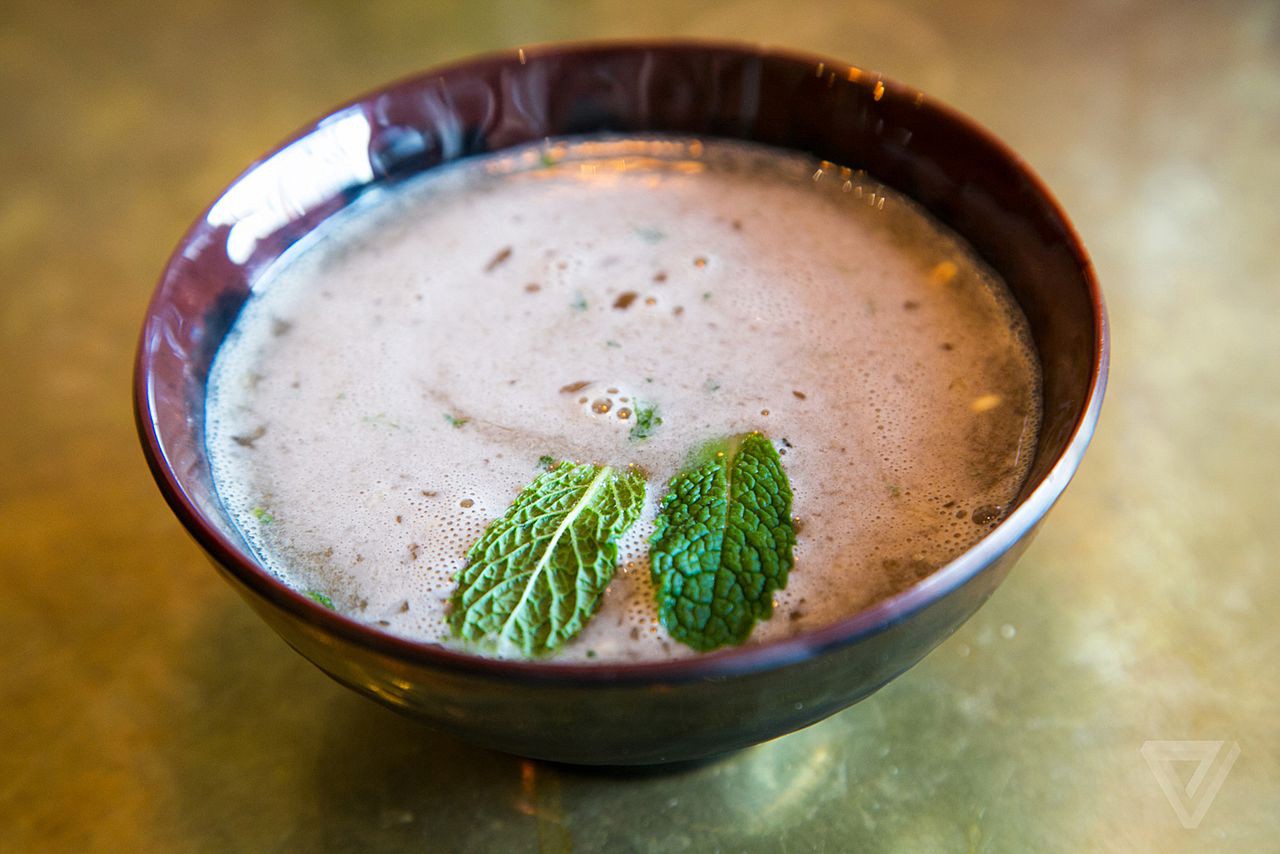 Mmm, dirt water.
Mmm, dirt water.
- Kratom
Per WebMD, Kratom is a tree leaf that is used as a recreational drug and medicine. Many people use it for opiate withdrawal, cough, depression, anxiety and many others, but there is no scientific evidence to support these uses. It CAN be unsafe to consume Kratom, so please always do your research before trying anything. Because Kratom contains a chemical called Mitragynine, it can provide euphoric and psychotropic effects. I am no expert, and I want to reiterate ? use discretion and research before you consume anything. I?ve found Kratom served at various different Kava bars where Kava and CBD are also served. For me, it?s a relaxing experience, but I understand the risks and always consume it in moderation.
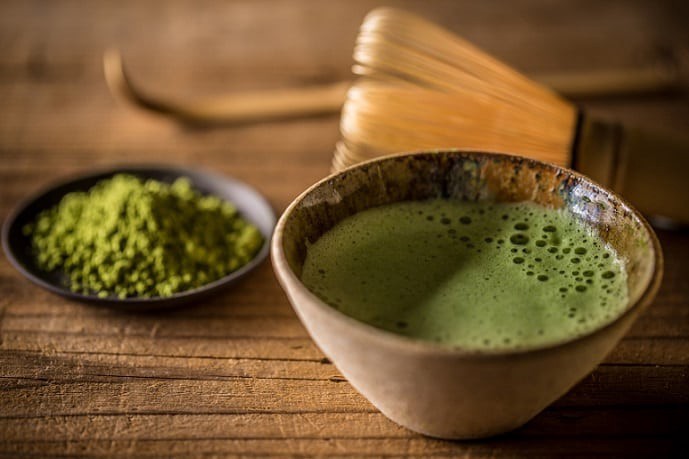 A frothy Kratom drink.
A frothy Kratom drink.
- Non-Alcoholic Beers (and wine)
Yes! Non-alcoholic beers and even wine exist. While most people would claim that the only point of drinking wine or beer would be for the alcohol, I would disagree. The alcohol, at this time, is the part I can do without. However, I miss the taste of a good IPA with a juicy bacon cheeseburger, or a full-bodied cab with a medium rare filet. It?s hard to replace the camaraderie that comes from clinking beer bottles together with buddies while watching the game, and a general feeling of ?fitting in.? These help you do all of that. I?ve only had a couple of non-alcoholic beers, but now when going to weddings I ask if they will have any on the menu, and prepare to bring my own if not.
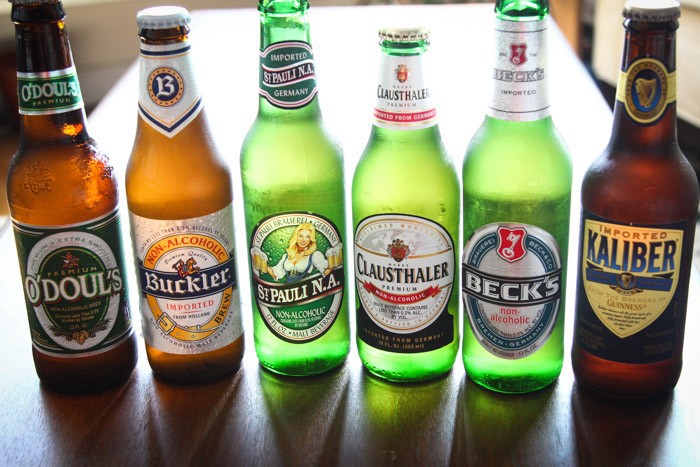 Find a list of non-alcoholic beers here.
Find a list of non-alcoholic beers here.
Accountability
I?ve found, throughout my life, it?s easy to break my own promises, especially when it came to alcohol. There were many nights where I?d tell myself I?d ?moderate? only to find myself knee deep in a tray of shots I offered to buy for strangers who also happened to be Boston Celtics fans.
The American Society of Training and Development found that people are 65% more likely to meet a goal after committing to another person, and up to 95% when they build in ongoing meetings to check in on progress. For me, accountability, in many different forms, has been the key to propelling success in my career in addition to developing new habits. I knew it would have to be the same when quitting alcohol.
- OYNB
One Year No Beer is a company that offers various alcohol free challenges, resources, and a 25,000+ person community in over 90 countries. When you sign up for a program they send you emails, videos, and exercises daily. Their community consists of private Facebook and Slack group access to connect with others? going through the same experience.
I think of OYNB as AA?s cool cousin who doesn?t bring up bible verses at the dinner table. And, I mean no disrespect to AA, but I felt OYNB fit my needs and lifestyle better. Originally, I bought the 30 day challenge. After the 30 day I upgraded to the 90. By the time I hit 90 days I was well past needing the program, so I did the rest of the year without it. However, using it at the beginning was an extremely useful tool.
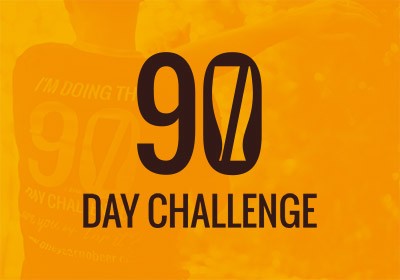 I completed a 90 Day OYNB Challenge.
I completed a 90 Day OYNB Challenge.
- Text Accountability Group
For the past couple years I?ve been in a text group with 7 men who I hold in high regard. We keep each other accountable to our goals in our group text. We talk about challenges we are going through, and support each other with advice, guidance, and a forum to discuss anything.
We report our running streaks of daily habits to the rest of the group. That simple exercise has been one of the most effective forms of accountability I?ve ever encountered. It only works, though, when everyone is bought in and encouraged to celebrate each others? successes, and listen to failures without judgement.
This group was extremely supportive of my decision. As the days went on it also became easier to stick to it because I didn?t want to let them down. For me, making external promises helps me keep them.
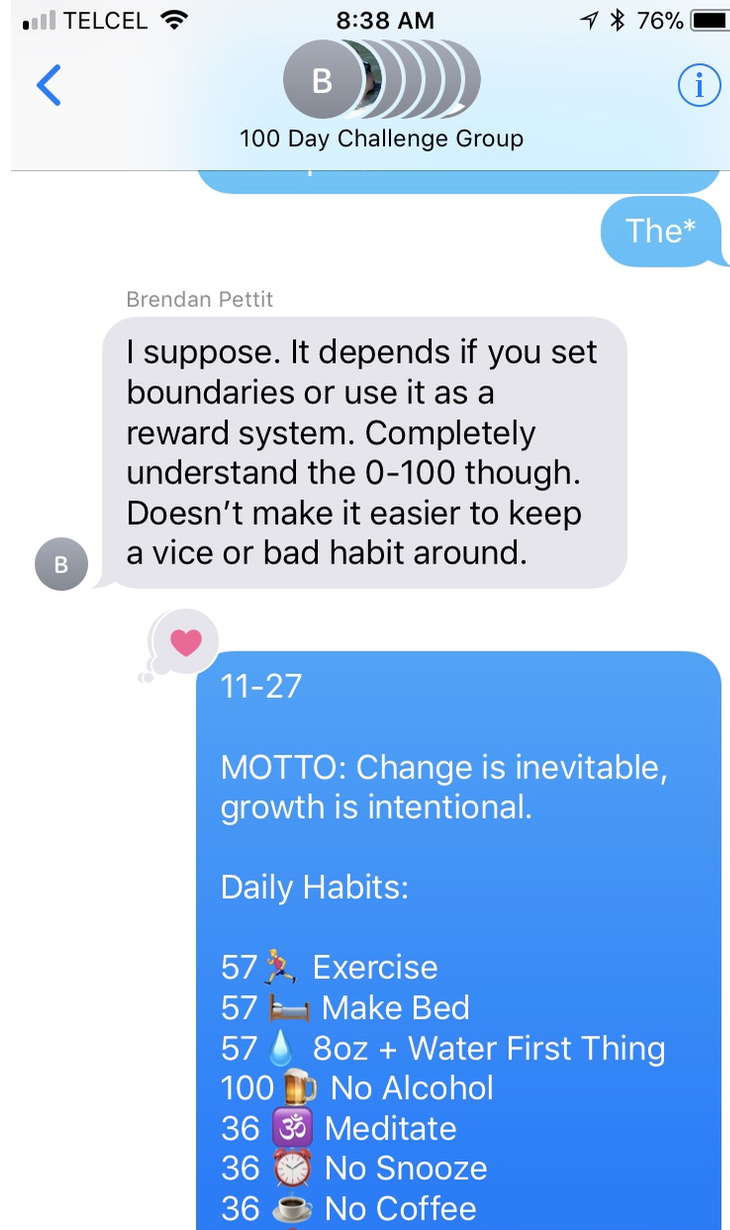 The text I sent our group, ?100 Day Challenge? when I hit 100 days without alcohol last November.
The text I sent our group, ?100 Day Challenge? when I hit 100 days without alcohol last November.
- Transformation Conversations
As I transitioned into a new normal I had to create different versions of my current friendships. Because many of my friends were used to spending time with me over drinks, I had to ask for their support and accountability in quitting. Some people won?t understand why you want to do this. However, it?s important, in fact, crucial, that you get these people on your side if you want to succeed. They may take it personally that you don?t want to drink with them anymore. It?s as if your personal decision invalidates their continued behavior.
While that?s not the case, you have to protect yourself and be selfish. If someone isn?t willing to support your new normal, it?s best to cut ties. A transformation conversation can help determine if someone is a true friend, or an accomplice to your bad habits. I learned much of what I know about transformation conversations from one of my favorite books: Crucial Conversations. Below is a summarized version of how to have this type of conversation, which can be applicable to many difficult conversations you may need to have with friends and family in this process.
The Process of a Transformation Conversation:
- Who is Who: Make a list of the important people in your life who are friends and/or accomplices. Think about who enables you to drink and who is important enough to try to keep as a friend, and also think about who is already supportive of you no matter what. These are the people that you?ll need to have conversations with.
- Redefine Normal: Determine how you want your new life to look. What activities and hobbies will you replace drinking with? Getting an understanding of your ideal world will help you articulate it to the important people in your life.
- Hold a Transformation Conversation: After you?ve discovered the people you need to have conversations with and the new normal you want to create, have the conversation.
- Start by asking for help. Let them know what they mean to you, don?t blame them for the role they may be playing in your drinking habits. Focus on the effect of their presence rather than assuming they?ve had bad intent. This helps reduce their defensiveness. Oftentimes they won?t be aware of how they are impacting you negatively.
- Ask for a new, healthier relationship. You still want them to be your friend, focus on that. Explain exactly how they can help you, they aren?t a mind reader. Maybe that?s not pressuring you to drink, maybe it?s getting you a water when you?re at the bar, maybe it?s going for hikes instead of going out to night clubs. Determine how they can play a role in the positive change.
- If they agree, then it?s a dual effect ? you have an awesome friend and they?ll feel good about being there for you. You may also have an impact on them changing their own life. Remember, though, this is never about converting someone to also go without alcohol, although you may find some of your friends will follow your influence.
4. Add New Friends: Create new circles of friends. Focus on the new normal you are trying to create, and find communities and groups of people who already participate in these activities. If you want to start focusing more on your spiritual side, find a church or spiritual center, if you want to exercise more, find a sports league or join a gym with classes.
5. Distance Yourself: As you have these conversations, you may be met with resistance from some people. Distance yourself from the unwilling. This will sometimes be really difficult, especially with old friends. However, as you start surrounding yourself with different people and also participating in other hobbies, this separation will come about organically.
Now, this didn?t always work. I didn?t get what I wanted with every conversation. I had to cut ties or lessen my time spent with some people. But that?s ok, I don?t regret it at all. If someone is unwilling to support your positive change, then you should question t9heir true intentions as a friend, and you may have to grow apart.
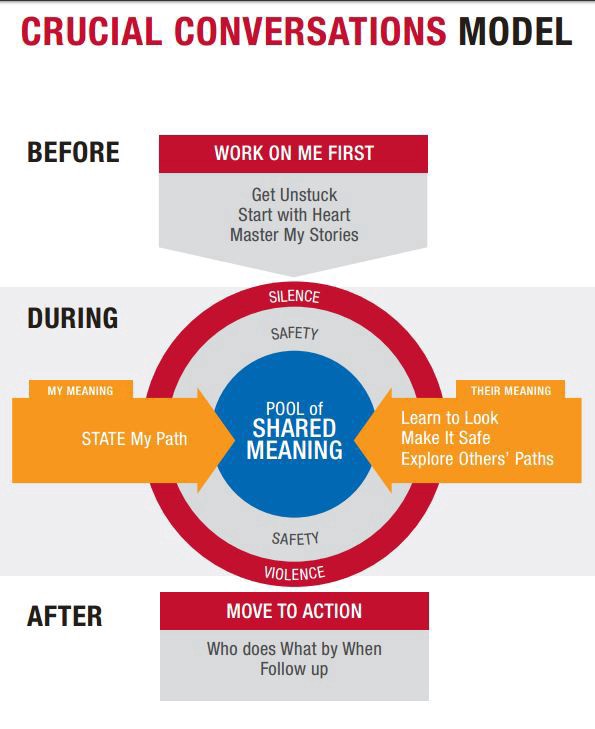 An excerpt from Crucial Conversations on how to have difficult, high stakes conversations.
An excerpt from Crucial Conversations on how to have difficult, high stakes conversations.
- Therapy and Coaching
Many of us have friends and family who we trust and confide in. However, we can sometimes take advantage of these relationships by burdening them with negativity, complaining, or unloading our problems on them all the time. It?s not to say that they don?t want to be there for you, and sometimes it feels good to vent to a loved one. But, we need to be aware of how much our relationships are built on love and positivity, and we?re not setting up the people around us to feel like we are using them as a mental punching bag when we need to let off steam.
At some of my lowest points and my biggest challenges with alcohol, having a therapist to talk to really helped. I?ve also hired coaches that served as accelerators to my business and life goals. Getting thoughts out verbally, talking through decisions, and having an objective mind to listen to my issues offered a healthy coping mechanism that bolstered my support and accountability.
I also value financial commitment, and paying someone upfront. When you pay for something you psychologically invest more of yourself. Knowing that I paid for my sessions offered consistency week over week and I began to look forward to my conversations with my coaches and therapists. This is also one of the reasons I justified paying for a One Year No Beer program. I knew I would feel stupid if I paid for it and didn?t use it. You can use the accountability of financial commitment to supply focus and motivation that otherwise wouldn?t be present if it was free.
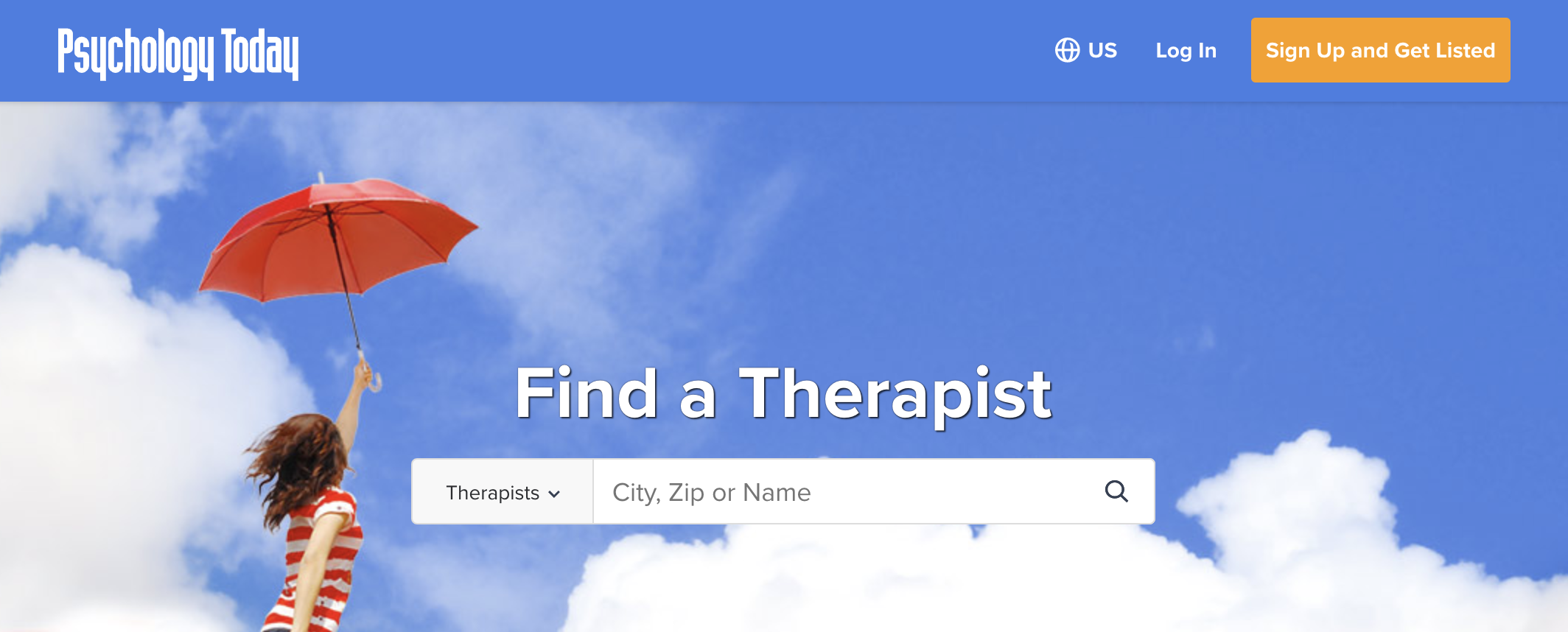 I found my therapist on Psychology Today. I recommend interviewing a few of them to find the right fit for you personally.
I found my therapist on Psychology Today. I recommend interviewing a few of them to find the right fit for you personally.
My Important Lesson ? I?m Ready To Love Myself
What I?ve realized about my own personal willpower is that with alcohol it can be lost. Easily. I find it easy to break promises with myself. That drives a deep resentment that I?ve carried for many years, and I?m finally ready for my liberation.
I understand how to handle my emotions better. I?ve learned more about myself. I internalize the temporary nature of each moment and allow myself permission to move on rather than delay the inevitable by self-medicating. I haven?t lost a damn phone, wallet, keys, shoes, or anything important in the past year.
And I?m going to keep it rolling.
Alcohol and I are not divorced just yet, I just finally got the courage to call for a separation. We moved into different apartments and we?re not on speaking terms. I may not give up drinking forever because dammit I do LOVE the taste of a triple IPA, a bottle of Pinot, and the bite of tequila.
But for me, at the moment, the taste doesn?t justify the effects anymore. I just don?t like how I feel.
And what more do I have than how I feel?
It seems to be all I have these days (in a good way):
Feelings. Emotions. Thoughts. All things I used to escape from, now vivid at the forefront of my consciousness. I am choosing to face my challenges head on, and working through issues without a familiar crutch.
I?m ready to feel. I want to feel my love for myself and know I mean it. I want to feel all the emotions that come ? sadness, anxiety, happiness, joy. Because as I allow myself to feel, my world gets brighter as a whole.
I love myself now more than I ever have, and that?s worth more than any pint.
Until next time? keep wandering, you?re NOT lost.
Find more about me on my website here.
Connect with me on LinkedIn: Jordan Carroll
Read my other articles:
- How I Lost 25 lbs, 5% BF, and My Chest Hair in 100 Days While Traveling the World
- My Ayahuasca Manifesto: 6 Insights to Bring Back to Conventional Reality
